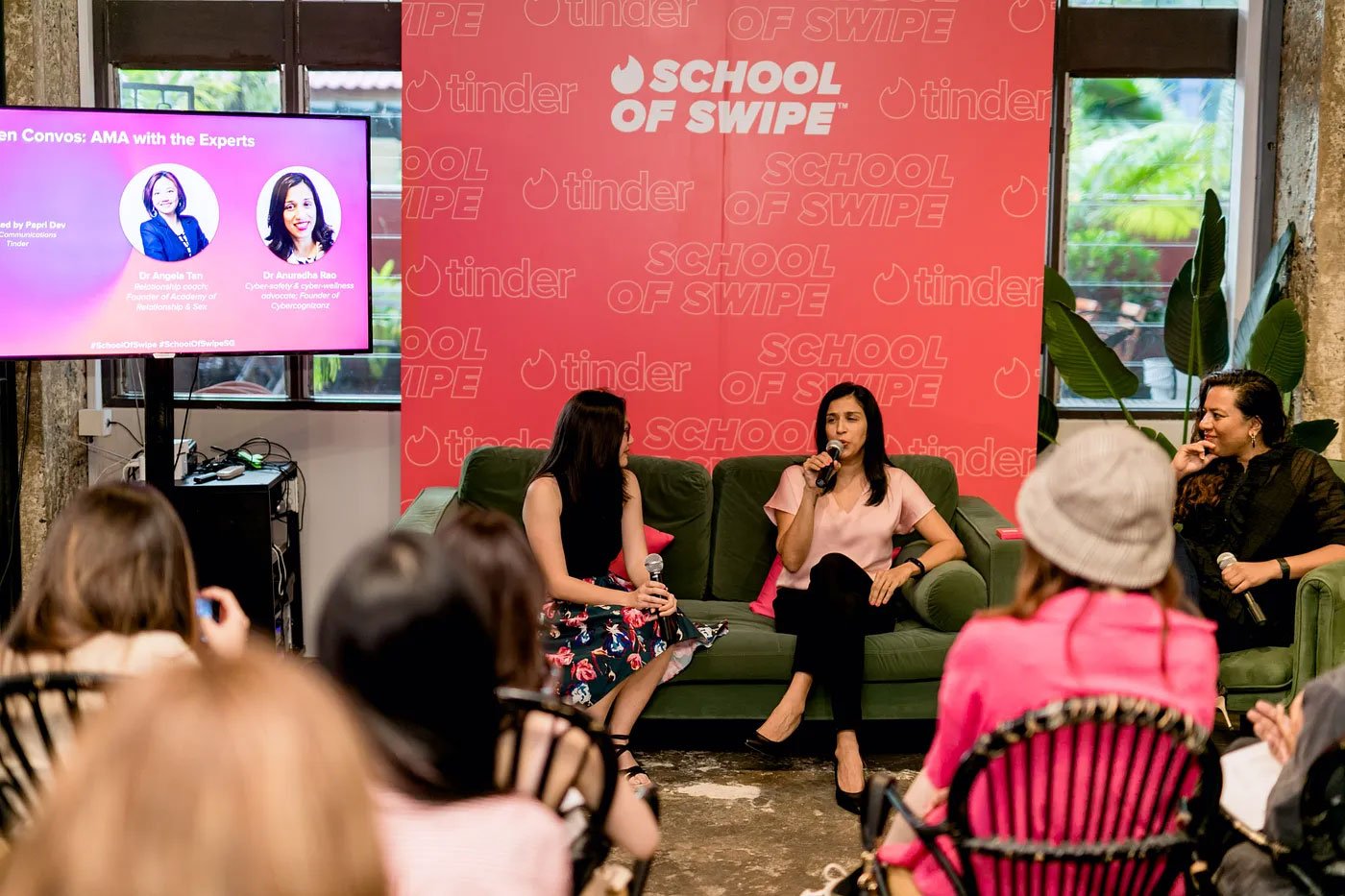
I recently had the pleasure of connecting with Dr. Anuradha Rao, the founder of CyberCognizanz — a cyber safety and cybersecurity awareness company. She and her team work with organizations to identify and manage cyber-threats to employee or end-users’ financial, physical, emotional, and mental security and wellbeing. This is done through consulting, workshops, education and communication services about potential cyber threats, how to respond, and the best cyber hygiene practices to keep organizations safer in an increasingly digitized business landscape.

In our meeting, Anuradha offered a ton of insights on cybersecurity, safety, and wellness from a perspective that ended up being unlike anything else I’ve ever seen or read online — including actionable insights that are unique to university students.
Check it all out in the interview below!
Please tell me more about you, your professional background, and your business.
I am a cybersecurity and cyber awareness trainer, consultant, and educator. I am passionate about helping individuals, families, and organizations stay safer, healthier, and happier online. I’ve worked with a range of clients, including corporations like Tinder, and intergovernmental organizations like UN Women, as well as think tanks, nonprofits, and higher education institutions.
I raise awareness about identifying and managing cyber threats for financial, physical, emotional, and mental well being. My work also highlights the cost to companies about ignoring the human factor, which is often the soft aspect of cyber in their business operations, which can also have a big impact on their cybersecurity costs. I have a PhD in Communications and New Media from the National University of Singapore, and I’m Associate Faculty at The Singapore University of Social Sciences, where I teach and supervise research on cyber crime, cybersecurity and digital transformation.
I’m originally from India, and I’ve lived in ten cities in six countries, and I grew up traveling the world with my parents and my sister. I’ve been based in Singapore since 2008, where I raised my family and served the community. In addition to women and children’s online safety, I am passionate about animal welfare, and geopolitics. I love long walks, traveling, and Bollywood dancing.
It’s interesting that you focus on cybersecurity, cyber safety, and cyber wellness. Will you please explain, with minimal words, what each of them are?
Cybersecurity basically means the emphasis on protecting your devices, your personal data, or organizational data. So, it’s the safety of systems, and the data within the systems.
Cyber safety, on the other hand, focuses on the safety of the people that are using new technologies, and focuses on protecting them from online harm. And it encompasses different elements, such as physical, mental, and emotional safety as well when they’re online.
Cyber wellness moves a step ahead of that, and is focused on given that we are constantly using, and attached to new devices and tools every day, day in and day out, how can we be safer, healthier, and happier as well online? So, how do we ensure that emotionally, mentally, and physically that we feel well, and we are not overwhelmed by these technologies that we are constantly using, and that we are using them in ways that are empowering for us, and for the people in our lives?
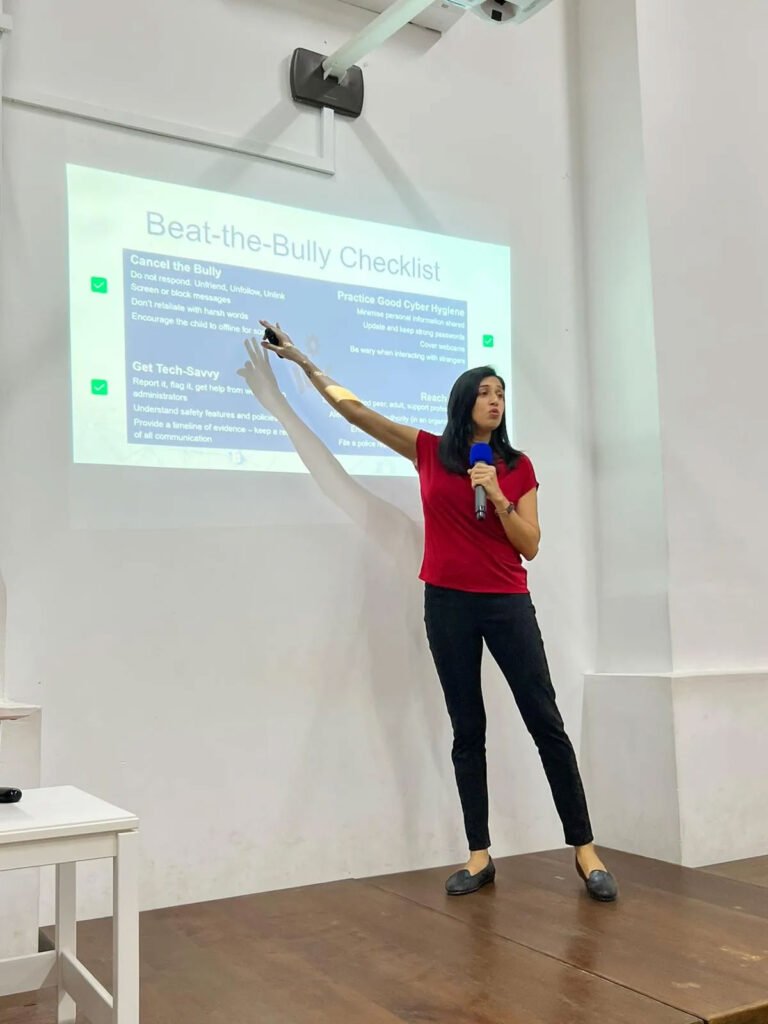
How do cybersecurity, cyber safety, and cyber wellness intertwine?
One of the key things I do is go around and tell people that cybersecurity, safety, and wellness are not separate, and they actually intertwine, and in many different ways. We often tend to look at these as acting silos, or as separate spheres. But actually, I find that, with cybersecurity, people and staff are often stretched thin, and unless people within an organizational family understand how to use new technologies in the best ways for them, they aren’t in an optimal wellness level, or even mentally, they aren’t alert enough to protect themselves, or their families. And if they aren’t in a good mental space, how can they protect their data, and their organizations?
So I find all of them require to be understood holistically, and make sure that people feel safe and secure, and understand why it is important to look after their data and systems, and actually have the motivation to focus on cybersecurity once they understand the connections. Because the personal and professional, in remote work especially, are so intertwined, that we can’t keep them as separate spheres anymore.
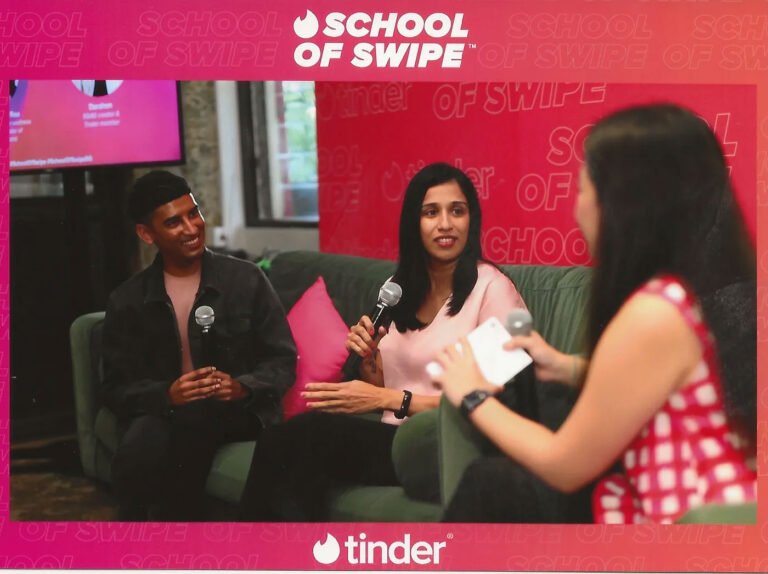
Are these concerns that only apply in school/business settings, or can they apply in the daily lives of individuals also? How so?
No, absolutely not. Anyone that uses the internet has to be aware of the importance of cybersecurity and well being. Anyone who is connected to the internet, who uses it and has a phone, a device, is using email — we are all vulnerable to some form of online harm. Whether it’s hacking, cyber crime, bullying, or just information overload, stress and anxiety from being online too much; this is something that every person has to think about and incorporate into their daily lives.
What are some cyber concerns that might uniquely apply for university students? How can these concerns be addressed?
University students are a group that are online, and intimately connected to technology in almost every aspect of their lives. One of the things they really need to look out for is how much of their personal data they are safeguarding. For example, when they come on secure platforms, such as Kempus, where they can share aspects of their university life anonymously, they need to be mindful of not sharing self-identifying information, because there are elements that they need to watch out for, such as doxxing where your identifying information can be used against you to harass or embarrass you in a way that is made public.
University students that participate in an online community have to do so in a respectful and empathetic way, so that these communities stay as safe spaces, and that harassment and bullying is kept out of the picture. I know that university students also have to be mindful of online harms such as cyber stalking, and other forms of online harassment that they need to be aware of and how to protect themselves. So I’d say all in all, university students have to be aware of the kinds of harms that they are possibly exposed to.
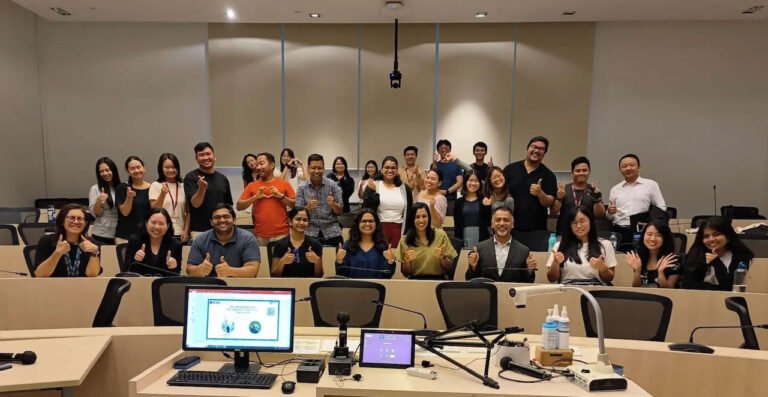
I would say university students also have to be mindful of how to date safely online, as this does happen on online dating apps, and there are ways to do this that are more safer and secure, and to do checks and balances before getting into a relationship. Also to be mindful that dating apps do have their fair share of fake profiles, and this is the case for social media as well. So one thing is to not give out too much of your personal information to people on social media, as well as dating apps, so you can do your due diligence before you engage in communications or conversations with someone like this.
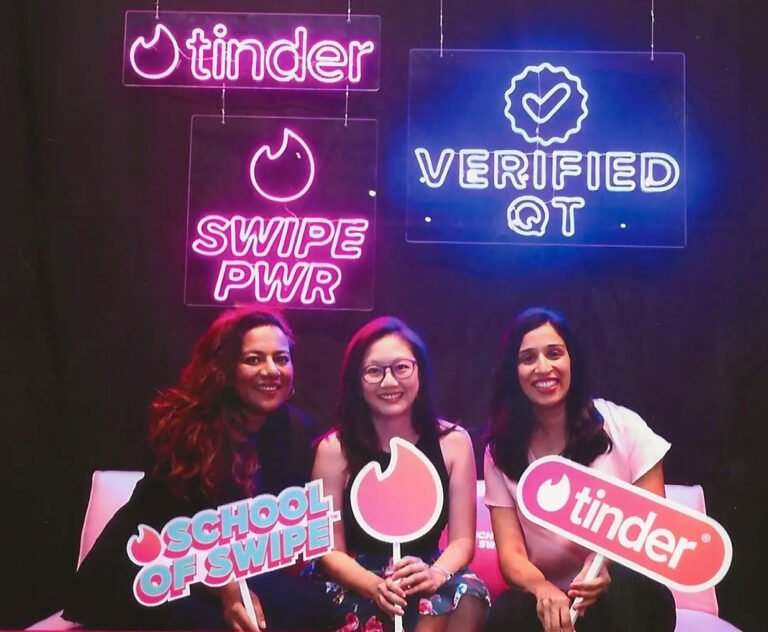
Do you have some netiquette tips you might like to share with our readers?
Netiquette, or appropriate online behavior is so important, but in our busy lives, people often tend to forget that there’s a human being on the other side of the screen. In communication, one thing that I always tell my students, is to remember that when you are sending an email or any type of communication, to remember that there is a living, breathing human being on the other end receiving that, and you want to talk to them as if they are in front of you, and be respectful and empathetic, and be mindful of how your words could hurt or harm. I think that would go a long way in making our online experiences much better if people thought that way.
How can people contact you to learn more about you and your company?
You can reach me via email at anuradha.rao@dranurao.com. You can learn more about my work on LinkedIn. There are many more resources on cybersecurity, safety, and wellness on my website.
Do reach out, I would love to learn more about your cybersecurity, safety, and wellness concerns; and how my company and I can help keep you, your loved ones, and your organization and employees safer and more secure.

Comments are closed